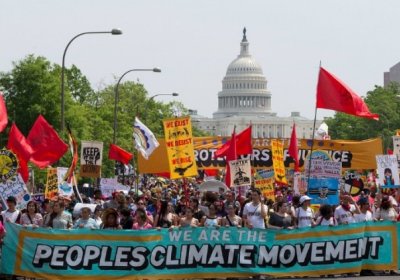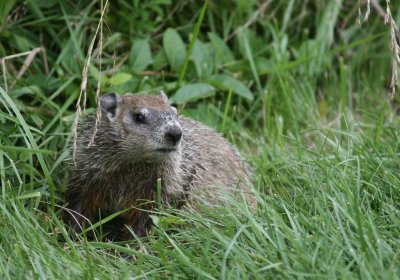As President Donald Trump delivered his expected announcement in June 1 of withdrawing the United States from Paris climate agreement, environmental group 350.org laid out steps for an energised people's movement that could “rise up like never before” and stop the anti-science White House from destroying the planet.
Climate change
A look at three important new books on the growing global environmental crisis and two that mark the 100th anniversary of the Russian Revolution.
A large commercial beekeeper in Darlington Point in the Riverina, southern NSW, has been forced to pack up and move after hundreds of beehives were devastated by pesticide-drift from nearby cotton farms. It is thought the bees died due to the spraying of neonicotinoid insecticides.
My generation has never experienced a below average temperature. The last time the global temperature was below average was in February 1985.
Meanwhile our political leaders — privileged white men in suits — brought coal into parliament and made jokes while they and their corporate mates continue to burn our collective future.
Global warming has already increased the risk of major disruptions to Pacific rainfall, according to our research published in Nature Communications. The risk will continue to rise over coming decades, even if global warming during the 21st century is restricted to 2℃elcius.
Conservationists say the Strzelecki Ranges hold “one of the most important koala populations in Australia”, after completing surveys that may suggest a population of several thousand koalas across the region.
My heart breaks over Category 4 Hurricane Matthew’s slamming of Haiti, Jamaica and Cuba.
When Hurricane Sandy struck New York City where I live, our entire neighbourhood was destroyed — every single house was uninhabitable.
[Ross Garnaut is a Professor of Economics at the Australian National University. In 2007 he was appointed to examine the impacts of climate change on the Australian economy and recommend medium to long-term policies and policy frameworks to improve the prospects for sustainable prosperity. The Garnaut Climate Change Review was finalised on September 30, 2008, with an update released on May 31, 2011. This is a speech given by Garnaut to the renewable energy summit hosted by the South Australian government on October 6.]
* * *
Australia recently gained an unenviable title: perhaps the first country to lose a mammal species to climate change. The Bramble Cay Melomys, a native rodent found on one tiny sand island in the remote northern regions of the Great Barrier Reef, reportedly became extinct after rising seas destroyed its habitat.
- Previous page
- Page 6
- Next page











